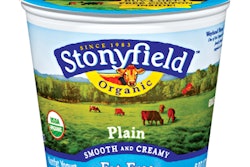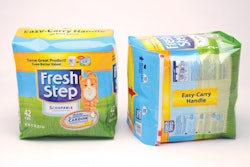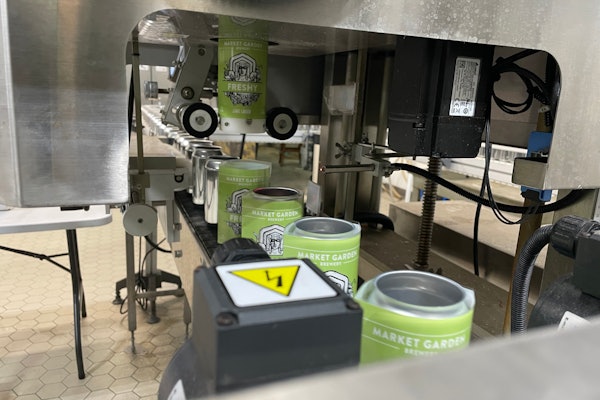TellesSoilWrap was developed to address the massive landfill waste associated with horticultural plastic. According to 2007 data from Penn State, quoted by Ball, every year, 350 million lb of horticultural plastic is used in the U.S., while only 4% is recycled.
“The intention was to design a pot that can be planted in the ground,” explains Greg Trabka, new product development manager for West Chicago, IL-based Ball. “We chose Mirel because it is soil-biodegradable. When you introduce it into the soil, it is actually seen by microbes as a food source.”
The wraparound plastic “sleeve” eliminates the use of a bottom panel on the pot, which allows plant roots to make immediate contact with the soil upon planting, encouraging faster growth. Trabka notes that the plantability of the pot also ensures greater product success. “From our experience, a lot of plants are destroyed by people who don’t know how to remove the plant from the pot,” he says. “With SoilWrap, you avoid damaging the root system.”
While SoilWrap degredation begins as soon as soil is placed in the pot, the process accelerates only after the pot is planted, allowing plenty of time for use in the greenhouse and garden center. Once in the ground, the pot is said to completely biodegrade within 12 months.
Says Greener Package Awards judge Eric Hartman of Product Ventures, “This is a great example of the development of a biopolymer and its ultimate use in a biodegradable application.”
Another sustainability advantage of SoilWrap cited by Ball is the space it conserves on pallets. The company says that two and a half times more assembled SoilWrap packages can fit on a pallet compared with traditional 3.5-in. petroleum-based plastic pots. “With 60 pallets of SoilWrap on a truck, that results in 243% more SoilWraps per truck, which reduces the number of trucks to less than half,” Trabka says, adding that this results in less carbon-dioxide emissions. The space savings, he says, also extends to storage and warehousing.
SoilWrap is currently available in a 3.5-in. size, with a 4.5-in. design soon to be released. Goex extrudes the resin into an 11-ga sheet, which is converted by General Converting, Inc. Unlike natural-fiber pots, which are also plantable, the Mirel SoilWrap package can be preprinted with marketing material and UPC bar codes for an attractive, on-shelf appearance.


























